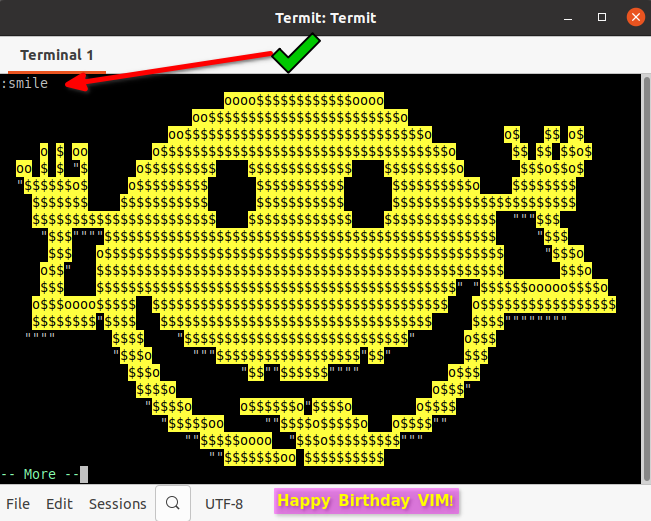Search results for tag #vim
# "Using LibreOffice and other Free software for documents as a lawyer"
I was asked recently about how I get on using LibreOffice for document-related legal work, and I promised to write down some thoughts.
The short answer is that I use a mix of LibreOffice and other FOSS tools, and I’m very positive about it, with no particular concerns.
If you have questions, please do ask!
https://neilzone.co.uk/2025/11/using-libreoffice-and-other-free-software-for-documents-as-a-lawyer/
Advanced Programming in the Unix Environment
Week 5: The Editor
In this video lecture, we look at the required feature for a full-fledged programmer's editor and illustrate some of the core functionality by example of vim(1). This includes basic motion commands, setting and moving to markers, using folds, and the use of the ':make' and quick fix lists to address compiler errors efficiently.
(Don't worry, we'll talk about ed(1) later.)
Any #vim #programmers enthusiasts here?
Based on a comment I read on stack overflow I made this little repository
https://codeberg.org/ditchgithub/templates_and_code_snippets
the goal is to add as much boilerplate code in as many languages as possible.
I know it looks bare right now, but I think it would be cool to have a resource with a lot of generic templates + code snippets
P.S : I love my bash template
https://codeberg.org/ditchgithub/templates_and_code_snippets/src/branch/main/bash/template
pull request or snippets welcome.
So, exporting 73Kb ODS document (several sheets with one small table on each one of them) into XML in #LibreCalc results in 439Mb file.
#Vim basically dies on this file. #Emacs opens it instantly. I can even navigate it freely and syntax highlighting works. Although it doesn't help much.
Here's a catch:
me@desktop:~/temp$ wc -l file.xml
1 file.xml
It's a 439 Mb long line.
I have no idea what's wrong with LibreCalc.
Dumb #Vim trick: I knew that I wanted to jump about ¾ of the way into my file, but didn't want to page down a whole lot from the top of the document, nor did I want to jump to the bottom and page up a bunch.
Vim lets you type a number and the "%" to jump to a particular percentage line of the file. So to jump to my target, I typed
75%
and bang, landed within a couple lines of my desired destination. To learn more:
:help N%
Tabs vs spaces has always been a controversial topic. Thankfully, #vim isn't biased in any way.
To convert spaces to tabs, use `:set noexpandtab`, then `:retab!`.
Convert tabs to spaces with:
:set expandtab
:set tabstop=4
:set shiftwidth=4
:retab
I learned enough of vi (not Vim) in an hour or so from a coworker to get started after learning about Escape.
Then I read more documentation.
There are many powerful features in Vim, but you can easily forget about them if you do not use it every day.
I’m moving back to Vim.
Unsurprised to have forgotten almost all muscle memory.
I’m starting my .vimrc from scratch because frankly the one I had was a bit of a Frankenstein’s monster.
I’m also manually handling plugins instead of going via a toolkit.
Trying to ease into it slowly and deliberately.
:wq
Totally random thought: would I be able to do the Gilded Rose kata using only the ed text editor in a reasonable time?
Goals:
1) have fun,
2) look like a fool,
3) learn enough ed to later be able to script complex text changes across files,
4) also level up in sed and vim
Reason: ed(1) is the standard Unix text editor.


